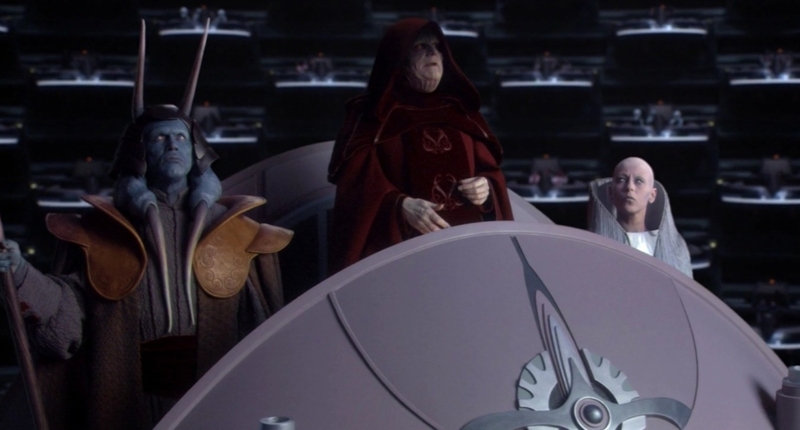The creator of Star Wars, George Lucas, drew inspiration for the series from American politics, particularly the Vietnam War and Richard Nixon. Lucas used Palpatine as a reference for Nixon in the original trilogy, while the prequels reflect the American zeitgeist of the early 2000s, with the narrative of the galaxy giving up its freedom in the name of security striking a chord with audiences. While the parallels between the prequels and American politics were unintentional, Lucas’s films remain relevant today and remind us of the importance of protecting our liberty.
George Lucas’ Political Inspiration for Star Wars
George Lucas, the creator of Star Wars, spoke about his inspiration for the Rebel Alliance and Galactic Empire in an interview with James Cameron for “James Cameron’s Story of Science Fiction.” Lucas stated that he comes from an anthropology background, and his focus is on social systems. Lucas also confirmed that part of his inspiration for Star Wars was the Vietnam War, with the Rebel Alliance representing the Viet Cong and the Galactic Empire representing America.
Lucas created the Star Wars prequels during the early 2000s, a time when America was still recovering from the 9/11 attacks. This environment made it easy for the Bush administration to consolidate power, from creating the Patriot Act to leading an invasion of Iraq with deception. Lucas’s prequels reflect this era’s American zeitgeist, with the narrative of the galaxy giving up its freedom in the name of security.
In the prequels, Palpatine/Darth Sidious (Ian McDiarmid) orchestrated his rise from Senator to Chancellor. In Attack of the Clones, he created war to give himself emergency powers and remain in office when his term limit was approaching. Finally, in Revenge of the Sith, he turned the Republic he falsely claimed to love into an Empire. Senator Padmé Amidala’s (Natalie Portman) line, “So this is how liberty dies – with thunderous applause,” perfectly sums up the story of the Star Wars prequels.
Lucas thought he was drawing on history when he wrote Palpatine’s rise, name-checking Julius Caesar, Napoleon, and Hitler as dictators who came to power with public support. However, he did not know that his films would reflect the American zeitgeist in which they were released.
During an interview with the Chicago Tribune, Lucas and his producer, Rick McCollum, commented on the real-life parallels between the prequels and American politics at the time. They confirmed that the parallels were unintentional, stating that they never thought Bush would become president or that there would be a 9/11, the Patriot Act, war, or weapons of mass destruction. They thought they were creating a wacky political parody of a guy everyone would forget.
In conclusion, George Lucas drew inspiration for the Star Wars prequels from the Vietnam War, and his political beliefs guided his work. Though the parallels between the prequels and American politics at the time were unintentional, the narrative of the galaxy giving up its freedom in the name of security struck a chord with audiences. Lucas’s films continue to be relevant today and remind us of the importance of protecting our liberty.
Political Influences in Star Wars
George Lucas, the creator of Star Wars, was inspired by American politics while creating the series. During an interview with the Chicago Tribune, Lucas and his producer, Rick McCollum, commented on the real-life parallels between the prequels and American politics at the time. They confirmed that the parallels were unintentional, stating that they never thought Bush would become president or that there would be a 9/11, the Patriot Act, war, or weapons of mass destruction.
However, the broad strokes of democracy being eroded thanks to a strong man leader remained until Lucas eventually told that story in the prequel trilogy. During “The Phantom Menace,” the opening text crawl declared, “the taxation of trade routes to outlying star systems is in dispute,” which has been maligned as too boring a hook for a Star Wars movie. However, the 1990s were the dawn of the modern, globalized economy, making “The Phantom Menace” more pressing than it might first appear.
The head of the antagonistic Trade Federation is named Nute Gunray, which is believed to be a parody of Newt Gingrich, then the Republican Speaker of the House. Lucas also used Richard Nixon as a reference for Palpatine in the original trilogy. The Emperor was originally conceived as a two-faced politician controlled by bureaucrats and the military-industrial complex, much like how the liberals of Lucas’ generation saw Nixon.
While the political commentary in Star Wars drew reappraisals, the films were still hampered by filmmaking and storytelling flaws. Despite the flaws, Lucas never lacked good ideas, as evidenced by the political influences in Star Wars.
Don’t miss interesting posts on Famousbio








